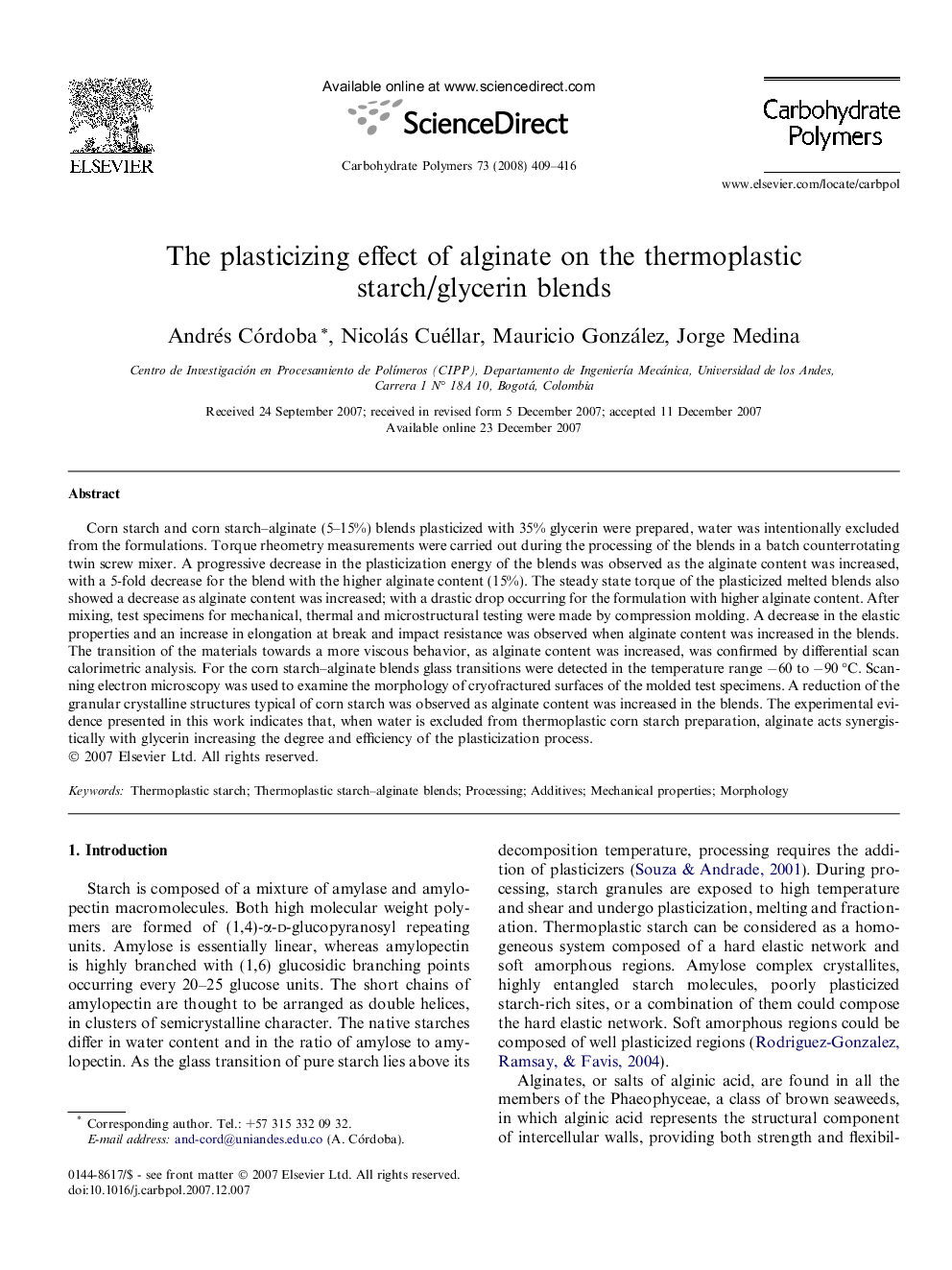| Article ID | Journal | Published Year | Pages | File Type |
|---|---|---|---|---|
| 1379349 | Carbohydrate Polymers | 2008 | 8 Pages |
Corn starch and corn starch–alginate (5–15%) blends plasticized with 35% glycerin were prepared, water was intentionally excluded from the formulations. Torque rheometry measurements were carried out during the processing of the blends in a batch counterrotating twin screw mixer. A progressive decrease in the plasticization energy of the blends was observed as the alginate content was increased, with a 5-fold decrease for the blend with the higher alginate content (15%). The steady state torque of the plasticized melted blends also showed a decrease as alginate content was increased; with a drastic drop occurring for the formulation with higher alginate content. After mixing, test specimens for mechanical, thermal and microstructural testing were made by compression molding. A decrease in the elastic properties and an increase in elongation at break and impact resistance was observed when alginate content was increased in the blends. The transition of the materials towards a more viscous behavior, as alginate content was increased, was confirmed by differential scan calorimetric analysis. For the corn starch–alginate blends glass transitions were detected in the temperature range −60 to −90 °C. Scanning electron microscopy was used to examine the morphology of cryofractured surfaces of the molded test specimens. A reduction of the granular crystalline structures typical of corn starch was observed as alginate content was increased in the blends. The experimental evidence presented in this work indicates that, when water is excluded from thermoplastic corn starch preparation, alginate acts synergistically with glycerin increasing the degree and efficiency of the plasticization process.
